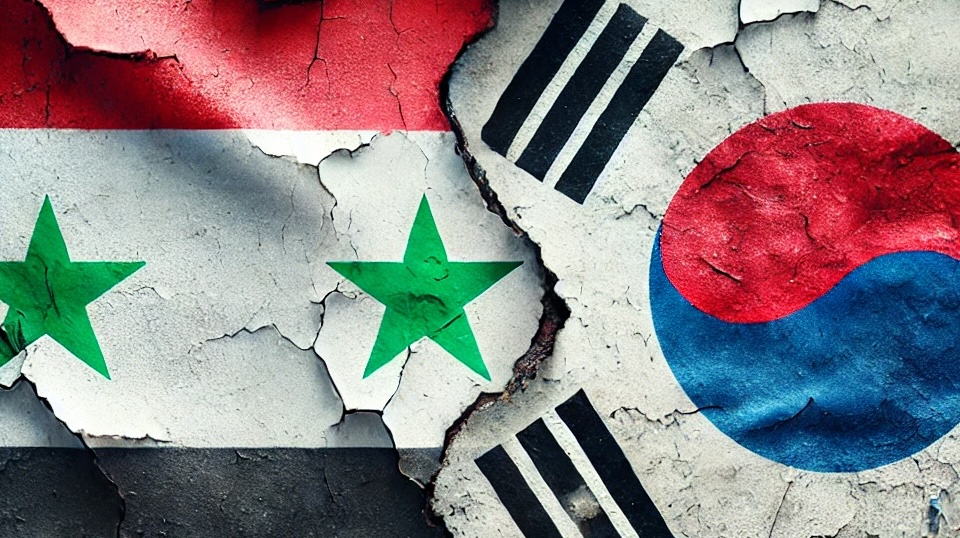Already a subscriber? Make sure to log into your account before viewing this content. You can access your account by hitting the “login” button on the top right corner. Still unable to see the content after signing in? Make sure your card on file is up-to-date.
South Korea has officially established diplomatic relations with Syria under its new leadership.
Some shit you should know before you read: If you’re unaware, back in December, rebels with Hayat Tahrir al-Sham (HTS), a group with previous ties to al-Qaeda, launched a coordinated offensive that toppled Bashar al-Assad’s regime, ending his family’s five-decade rule over Syria. Led by Ahmed al-Sharaa (al-Julani), a former high-ranking official of al-Qaeda who defected, HTS capitalized on Assad’s deteriorating military strength and widespread public discontent to seize control of key cities. As his government collapsed, Assad fled to Moscow aboard a Russian military aircraft, reportedly taking billions of dollars in state funds, and has since been residing in Russia with his family under the protection of the Kremlin. Despite efforts to rebrand itself as a nationalist opposition force, HTS has been scrutinized for its extremist ties, raising concerns among some countries about the group’s true agenda.

What’s going on now: In a notable development, South Korea officially established diplomatic relations with Syria, ending decades of a diplomatic rift due to Syria’s longstanding relations with North Korea. Historically, South Korea avoided relations with Syria because of the Assad regime’s military ties with North Korea, including allegations that Syria was sharing weapons technology with Pyongyang.
During a formal ceremony in Damascus, South Korean Foreign Minister Cho Tae-yul met with his Syrian counterpart, Asaad al-Shaibani, to sign a joint communique establishing official diplomatic relations. Both sides highlighted mutual interest in reconstruction, investment, and humanitarian assistance. Cho expressed South Korea’s readiness to contribute to Syria’s rebuilding process after 13 years of civil war, noting that there were opportunities for South Korean businesses to engage in infrastructure and development projects.

Al-Shaibani welcomed the potential for South Korean aid and voiced hope that Seoul would advocate for easing international sanctions on Damascus. The agreement marks a strategic recalibration for both nations, as Syria seeks to rejoin the international community and South Korea aims to expand its diplomatic and economic footprint in the Middle East.
Digging Deeper: The new relationship may also have significant energy implications. South Korea, which is reliant on imported energy, currently sources a substantial portion of its crude oil from Russia. With escalating geopolitical tensions and growing pressure to diversify, some have speculated that renewed ties with Syria could eventually pave the way for oil imports to South Korea.
As of now, no formal energy agreements have been signed, and it’s unclear if South Korea will help rebuild some of Syria’s energy infrastructure.






